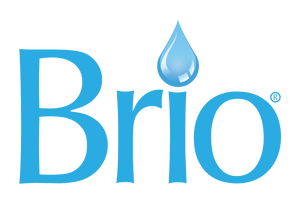Water Week 2025 is set to take place April 6–12 in Washington, D.C. Water industry professionals, policymakers, and advocacy groups will focus on the challenges and opportunities in shaping the future of water infrastructure in the United States.
Each year, Water Week is a national call to action, urging Congress to prioritize investment in sustainable, affordable systems that provide clean, safe water for everyone.
The weeklong event addresses key policies directly with lawmakers, environmental agencies, and industry leaders. Whether you attend in person or participate in local efforts, Water Week 2025 is a chance to support changes affecting millions of Americans.
The following organizations are proud to present the National Water Policy Fly-In:
• The American Water Works Association (AWWA)
• The Association of Metropolitan Water Agencies (AMWA)
• The National Association of Clean Water Agencies(NACWA)
• The Water Research Foundation (WRF)
• The Water Environment Federation (WEF)
The Fly-In — an advocacy day for professionals who travel to D.C. to meet directly with lawmakers — takes place Tuesday afternoon. Attendees will hear from prominent members of Congress, senior EPA administrators, and other government officials. The Water Week 2025 Reception is held that evening.
Virtual and in-person events are also on tap, including AMWA’s 2025 Water Policy Conferenceand WWEMA[a]’s 51st Washington Forum.
This year’s Water Week theme centers on long-term water access and safety. The main issues include water affordability, PFAS contamination, aging infrastructure, and federal investment in water research and innovation.
Brio fully supports efforts that promote access to clean water across the U.S.
The Key Themes of Water Week 2025
While a wide range of issues currently affect water supply and wastewater management, Water Week 2025 focuses on several priorities that require action at the federal level.
Affordability

Rising costs for water and wastewater services continue to outpace income growth. It can put a strain on many people, especially low-income households and small communities. For many Americans, the basic right to clean water is becoming expensive.
Water Week 2025 will encourage Congress to create a permanent low-income water assistance program and ensure EPA regulations don’t place excessive costs on utilities or their customers. Attendees will also advocate for practical ways to help communities modernize while keeping water bills low.
PFAS (Per- and Polyfluoroalkyl Substances)

PFAS, often called “forever chemicals,” are a major public health concern in water safety. These substances are linked to serious health conditions, including cancer, immune system disorders, and developmental issues.
Water Week 2025 calls for lawmakers to address PFAS contamination with clear regulations that hold polluters, not utilities, accountable for cleanup costs. Without protections under laws like CERCLA, the cost of cleaning up PFAS pollution could fall on everyday water customers rather than the companies that caused the contamination.
Infrastructure

Aging pipelines, plus outdated equipment and treatment systems, contribute to service disruptions, water loss, and safety risks. Communities need continued access to federal funds to upgrade these essential systems.
Long-Term Water Supplies

The sustainability of water access is closely tied to conservation management. Industry and agriculture use most of the nation’s water, yet incentives for better practices are limited.
Water Week advocates for tax credits that support water reuse technologies and conservation. It also supports removing tax barriers discouraging participation in local conservation efforts and water-saving solutions. These strategies are needed for a long-term, reliable water supply that helps maintain economic development.
Additional Focus Topics
Beyond affordability and contamination concerns, Water Week 2025 brings attention to several critical and often-overlooked issues in water management.
Sewage Systems and Improper Waste Disposal

Misleading product labeling on “flushable” wipes causes serious problems in wastewater systems. Clogs, equipment damage, and health risks for utility workers are common. One proposed solution is clearer “Do Not Flush” labeling and the creation of enforceable flushability standards.
Investing in Research and Innovation

Threats to water quality, such as contaminants and climate-related changes, require solutions. Federal investment in water research can speed up the development of strategies that improve public health in the long term.
Brio on Water Week 2025: Aligning Innovation with Advocacy

National efforts to upgrade infrastructure and influence policy are essential, but water quality can depend on what’s happening at the tap. That’s where Brio’s water filtration and purification systems come in.
In particular, reverse osmosis (RO) systems are a powerful solution to one of the most complex water challenges today: PFAS contamination. Unlike standard filters, RO systems force water through a semi-permeable membrane with pores just 0.0001 microns wide. Brio’s RO filtration systems can block up to 99% of PFAS and also remove:
• Volatile organic compounds (VOCs)
• Lead, arsenic, and heavy metals
• Bacteria and viruses
• Chlorine, sediment, and rust
RO systems are one of the few proven household solutions for reducing PFAS. Brio’s ongoing investment in RO and other advanced filtration technologies reflects our commitment to safe, clean water for all. Whether you’re looking for a system for your home, office, or facility, Brio offers filtration options designed to meet high safety standards at an affordable price.
Everyone deserves access to clean water, no matter where they live or how old their infrastructure is.
Final Thoughts
For Brio, Water Week 2025 is an opportunity to support water policies that benefit everyone. Whether you’re a homeowner, a utility worker, a policymaker, or just someone who values clean water, your voice and actions matter.
At Brio, we’re dedicated to continuing our part in Water Week and beyond with innovative technology, responsible design, and practical solutions for modern water challenges.
Together, we can help shape a future where clean, affordable water is accessible to all. Get in touch if you have any questions, or check out our reverse osmosis water filter systems.




